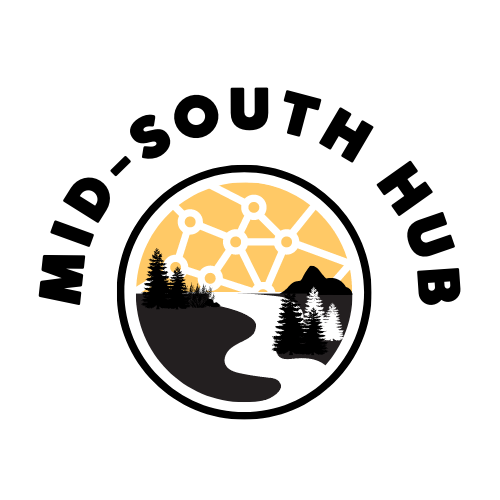Innovation in Cancer Drug Development: The Journey of InViDy through the NSF I-CORPS Program
Medical innovation has seen significant progress thanks to the support of programs like the National Science Foundation’s (NSF) I-CORPS. Catherine Leasure, the second ASPIRE to Innovate fellow at Vanderbilt University, exemplifies the transformative impact of this program on burgeoning startups. As she ventures to commercialize intellectual property (IP) developed at Vanderbilt, her journey with InViDy highlights the program's pivotal role in nurturing groundbreaking ideas.
Catherine, Aspire to Innovate Fellow
Catherine’s fellowship, a unique postdoctoral opportunity, operates like an entrepreneur-in-residence program, where fellows work towards commercializing university-developed IP. “The ultimate goal is to emerge as the CEO of your own company,” Catherine explains. This pathway not only allows for entrepreneurial success but also equips fellows with valuable skills for career opportunities in the startup ecosystem.
Catherine learned of the I-CORPS program through her fellowship, drawn by its promise to blend scientific acumen with business strategy. “The program teaches you to leverage scientific skills in a business context to assess market needs and the feasibility of building a business,” she shares. The intensive, structured training provided the clarity and direction she needed to navigate the complexities of the startup world.
The Value of Mentorship and Customer Discovery
A core component of the I-CORPS program is mentorship. Catherine emphasizes the importance of guidance from experienced mentors in overcoming hurdles. “Mentorship was crucial in reframing how I approached problems,” she notes. Through interactions at conferences and during customer discovery interviews, Catherine learned the significance of asking the right questions and validating assumptions. “Every conversation is valuable, and learning to extract key insights from each interaction is a skill I honed during the program.”
The customer discovery process, a hallmark of I-CORPS, played a critical role in shaping InViDy. “Conducting over 100 interviews in seven weeks was daunting, but it was essential for understanding the market and refining our approach,” Catherine explains. Attending conferences in San Diego, Philadelphia, and Salt Lake City provided opportunities to engage with potential customers and gather crucial feedback.
Navigating Challenges and Achieving Milestones
The journey was not without challenges. Securing interviews and managing time effectively were significant hurdles. “Scheduling interviews and ensuring they were with relevant individuals required proactive planning,” Catherine recalls. The program’s rigorous demands underscored the importance of time management and strategic outreach.
Catherine’s efforts culminated in pivotal insights about InViDy’s technology and market fit. “We realized our preliminary data was insufficient for immediate commercialization, leading us to focus on generating more relevant data and refining our strategy,” she shares. This critical assessment led to the decision to incubate the technology further within academia, aiming for a pilot study before full-scale commercialization.
The Transformative Impact of I-CORPS
Reflecting on the program’s impact, Catherine highlights the personal and professional growth it fostered. “The program was a huge confidence builder. Interacting with industry leaders and having them treat you as an expert was incredibly empowering,” she says. The experience also influenced the basic research approach in her lab, integrating customer discovery insights into scientific problem-solving.
The lean startup methodology introduced through I-CORPS was transformative. “Learning to use the business model canvas simplified our business planning and clarified our value proposition,” Catherine explains. The program’s collaborative environment, where industry mentors and academic researchers learn alongside each other, was a unique aspect she cherished.
Looking Ahead
Catherine’s journey through the I-CORPS program with InViDy exemplifies the transformative power of structured entrepreneurial training. As she and her co-founder, Dr. Gregor Neuert, continue to refine the technology and prepare for future commercialization, the lessons learned and connections made through the program will undoubtedly guide their path.
For those interested in the I-CORPS program, Catherine’s advice is clear: “Do it. It’s intense, but the growth and insights you gain are invaluable.” She emphasizes the importance of having supportive mentors and being prepared for the program’s demands.
The future of InViDy, shaped by the rigorous training and mentorship of the I-Corps program, holds promise for innovative solutions in cancer therapy. As Catherine and Gregor continue their work, they remain committed to advancing medical science and improving patient care through groundbreaking technology.
For Media Inquiries: lauren.carnahan@vanderbilt.edu
For inquiries about Regional and National programming: alexa.e.papanikolaou@vanderbilt.edu; mark.a.hilton@vanderbilt.edu
